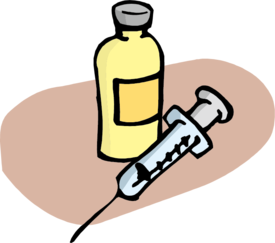Blood Glucose Rises After Work-Out

trish55011
Posts: 139 Member
This may be a topic for a diabetes forum, but I wanted to ask here as well since my question/quandary does involve keto. After my session at the gym today, when i arrived home about 30 minutes total had passed. I checked my blood sugar and it was up to 152. I am not sure how this is possible. I thought my glycogen stores in my liver were all used up. My carb intake over the last 3 days have been below 15 grams. I thought I would be burning fat during my work out... Am I doing something wrong with keto? Do I need to reduce my carb intake further so that I burn fat when I work out? Or am I missing something else entirely? Thanks in advance for any help, or ideas.
0
Replies
-
Thanks @genmon00, but I'm not understanding how it could. I'm not eating sugar/carbs. Will this exercise induced rise go away the deeper into ketosis and fat adaptation I go? Has it stopped for you or does your levels still rise after working out?0
-
YOUR LIVER STILL STORES GLYCOGEN.
You have only significantly reduced your muscle glycogen. You still have some muscle glycogen and you have liver glycogen just like before.
exercise is a stressor. Stress (cortisol) always, always comes with glycogen release from the liver.
This is why I was saying it's not always necessary to treat low blood sugar. Because your body can self correct.3 -
trish55011 wrote: »Thanks @genmon00, but I'm not understanding how it could. I'm not eating sugar/carbs. Will this exercise induced rise go away the deeper into ketosis and fat adaptation I go? Has it stopped for you or does your levels still rise after working out?
You will find it will always rise but eventually will be in non diabetic range once you REVERSE the insulin resistance. ONLY THEN, will your blood sugar stop swinging all over the place.2 -
Hi Trish,
I tested this theory and yes my blood sugar is up after exercising (on an empty stomach) but it does go back down. So exactly what Sunny says, when we exercise, the body release sugar (glycogen). Which for T2D is great since we have an excess that our bodies doesnt process correctly
1 -
Great new profile pic @Sunny_Bunny_ !4
-
I experienced this too in the past and always attributed it to burning fat releasing glucose into my blood stream. I am not very scientific.2
-
I also had this experience. The diabetes educator told me not to exercise if BS was too high. I find all of their advice to be very confusing. The nutritionist was anti LCHF.
Anyway... Glad to finally have some answers.3 -
I you exercise when your bs is too high ( over 250 maybe) you are low on insulin. exercising muscles want sugar and insulin is the key to getting it into the muscle cells. you won't get enough in the cell because of no insulin and your blood sugar may go higher. it's always a balance between insulin and sugar. Diet Doctor.com has some good information.2
-
juliegayleh wrote: »I also had this experience. The diabetes educator told me not to exercise if BS was too high. I find all of their advice to be very confusing. The nutritionist was anti LCHF.
Anyway... Glad to finally have some answers.
If bg was high before you start, it probably isn't a good idea.
The exercise can help with insulin sensitivity and of course lchf helps very quickly as well. The more you can keep carbs down, the faster you might see the improvement happen.
Other things can influence blood sugar besides actually consuming carbs and this isn't as well known.
Having a T1D to learn from has really helped me to understand how stress can influence bg, insulin and weight.
My daughter can get a big bg spike from watching a scary movie. She was almost hit by a big truck on the highway one day and almost ended up in the hospital with DKA because no matter how much insulin she took, she just couldn't get her bg to go down. At least not until she finally calmed down and relaxed a few hours later. As a matter of fact, her last stay in ICU happened because she was stressed at work, trying to get something done before a certain time, skipped lunch and ended up in the hospital for 3 days with DKA from blood sugars over 400 despite injecting insulin and not eating anything.
Anything that might stress you, can make it go up. It's how the body deals with stress. It's supposed to work that way. The problem is when a person is insulin resistant and it stays high for a bit and triggers insulin which you already make too much of as it is. So, stress can interfere with weight loss for anyone.
Now, in the case of exercise, the recovery is important. Your muscles were worked and now need to heal, you continue to burn more calories during that process and it's an opportunity to develop those muscles which will help you become more insulin sensitive.4 -
@Sunny_Bunny_
I have definitely noticed the effects of stress:(. Right now I am adding exercise to the list of things to discuss with new doctor1 -
I you exercise when your bs is too high ( over 250 maybe) you are low on insulin. exercising muscles want sugar and insulin is the key to getting it into the muscle cells. you won't get enough in the cell because of no insulin and your blood sugar may go higher. it's always a balance between insulin and sugar. Diet Doctor.com has some good information.
Not necessarily. T2D is a condition where there's too much insulin because the cells are resistant and don't easily allow the glucose in. Because of the resistant cells, the body makes more and more insulin to force the glucose into them. This is why the hypoglycemic episodes happen. At some point, the cells finally do respond to the volumes of insulin but now there's more insulin than glucose. This is also why treating only slightly low blood sugar can be the wrong thing to do if increasing your insulin sensitivity is your goal. The liver will respond the high insulin level by secreting glycogen and self correct the imbalance. If you provide the glucose from food to bring bg up, you'll simply restart the cycle all over again and be treating another low in a few hours.
And fat adapted muscles wouldn't have the usual need for sugar because they are used to using an alternative fuel source.2 -
Bg was 102 when I went to the gym.0
-
OP, if you have high BG, exercise can be used as a tool to lower it. The body works on demand and supply. It won't need to make more glucose (from burning stored fat or glycogen) when it already has easy accessible glucose as energy! This is part of the reason why exercise makes the tissues spent more insulin sensitive!
IMO, many confuse what "refuelling" before training is about. Refuelling works for PERFORMANCE, but is counterproductive to fat loss. If I wanna crush the gym I might refuel a bit right before, otherwise I do fasted training to "spend from my butt".
If you have both low glycogen and normal BG when training, you put the body through extra demand...which means it has no other option but to mobilize energy from the butt. In other words it's forced to use the on board pantry as energy. This is a GOOD thing. I'll advise you to diary your energy levels, BG and food intake around exercise.
Trial and error and troubleshoot. The first few months is an exploration into how your body works and it may change over time. Become THE EXPERT of your body! Good luck
@Sunny_Bunny. Ty for sharing the story about your daughter, stress response and glucose levels. It's a really good illustration why stress management (including good sleep) is a huge HIDDEN factor in the fat loss process.
Edit: Added a bit but didn't change any meanings.2 -
Foamroller wrote: ». I'll advise you to diary your energy levels, BG and food intake around exercise.
Trial and error and troubleshoot. The first few months is an exploration into how your body works and it may change over time. Become THE EXPERT of your body! Good luck
Perfect advice - simple and fundamental (and obvious... in retrospect).
We're all our own unique science projects, and experiments that leave some folks feeling tip-top may leave others with constipation and pimples!
2 -
Tale of the tape today:
FBG = 88
Breakfast = 3 Eggs with a side of fresh sliced tomatoes
61 minutes walking in the park, mod. effort
BG .5 hour post-exercise = 122
pickle juice recovery snack
pre-lunch or 1.75 hour post-exercise =111
Usual meds, 15 months VLC, 32 years T2
I have had no hypos on VLC.
A1c prior to VLC >13 last A1c 6.0 or
or 
9 -
KenSmith108 wrote: »A1c prior to VLC >13 last A1c 6.0
 or
or 
Amazing! If this is doesn't convince someone Lc is the best woe for a diabetic, NOTHING will! Great job for sticking with this WOE!1 -
I am truly amazed at my bg numbers. I have been running consistent pre-diabetic readings. Been T2 since 98, diagnosed in 2000. It did freak me out a bit when I checked my sugar after working out and it had jumped to 152. Now I know it's normal, and should go away (if not totally, then it won't rise as much) the deeper into ketosis I go, and the more fat adapted I become. @KenSmith108 I sent you a friend request. Congratulations on your 100lb success!! Totally amazing. I have 60 to go and I will be where I want to be scale wise. So thankful to have found keto. Can't wait to see my Dr's face when he gets a look at my numbers.2
This discussion has been closed.






